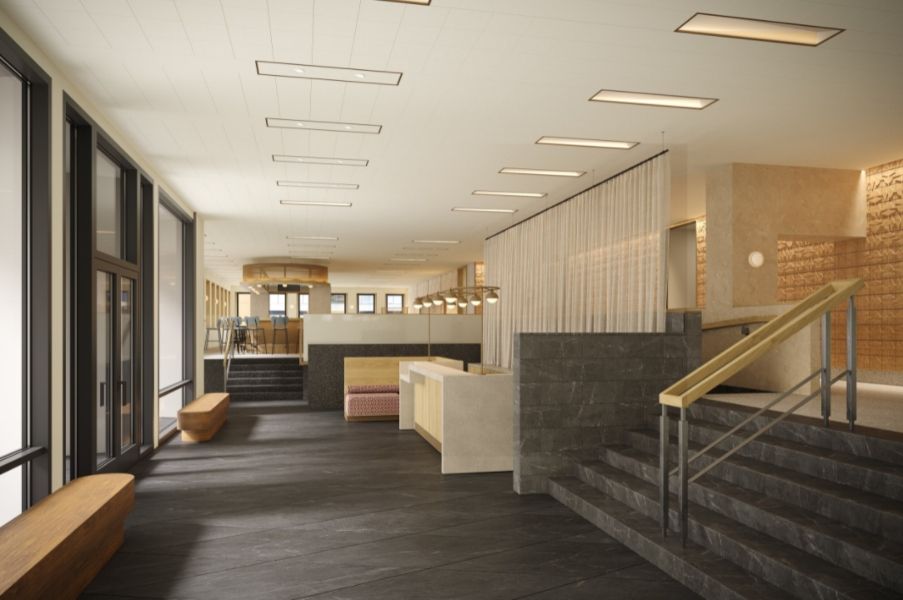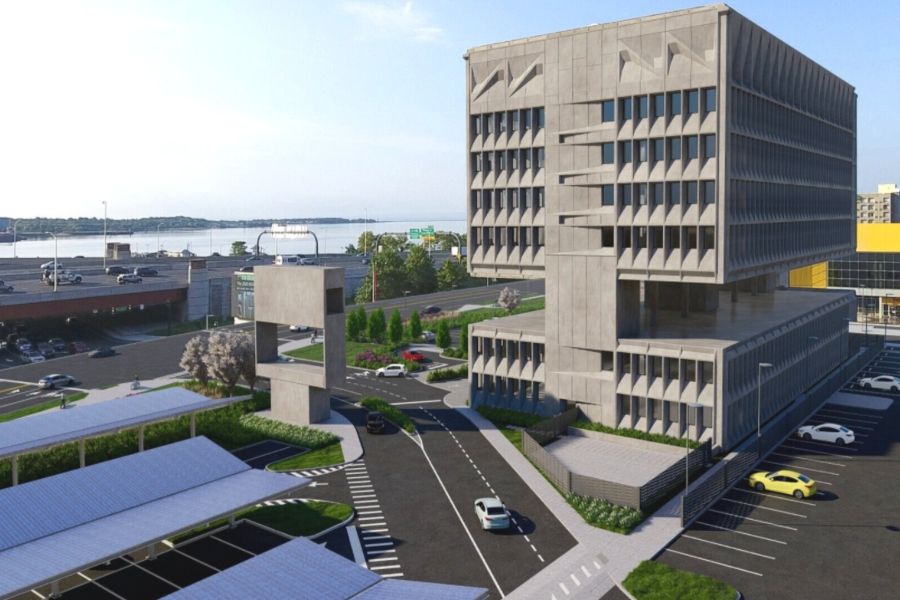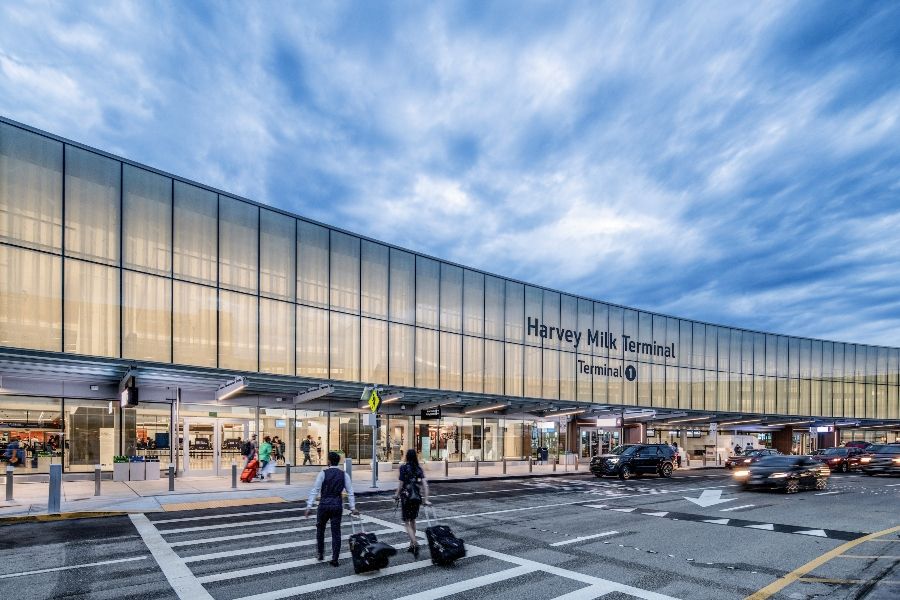Having sat long dormant and empty, an old tire building in New Haven, Connecticut is at last being given new life as an icon of sustainable hospitality and brutalist style. Designed by Dutch East Design and Architect and Developer Bruce Redman Becker of Becker & Becker, the Hotel Marcel joins the Hilton Tapestry Collection of luxury hotels and holds the distinction of being the first Passive House design hotel in the United States. It will be one of only a dozen hotels in the United States to receive LEED Platinum status.
“With the climate crisis and continued use of fossil fuels posing an existential threat to humanity, I felt an obligation to build a building that can serve as a model for environmental sustainability,” said Bruce Redman Becker, FAIA, LEED AP, Becker + Becker in Travel Daily News. “The question should not be why are we doing this but why isn’t everyone else?”
Transforming an Old Landmark into a Beacon of Sustainability
Capturing the eyes almost immediately in its construction is the monolithic, concrete pillar that seems to float above itself. The hard angles that adorn the façade of this brutalist structure draw the eyes to the angled windows, themselves offering golden flashes of light from captured sunbeams. However, the truly stunning work is what lies inside.
Once completed, the hotel will feature 165 guest rooms, a full-service restaurant and bar, a lounge and 7,000 square feet of meeting and event space with penthouse courtyard and galleries.
Owing to its astounding sustainability credentials, it will generate 100% of its own energy for heat, hot water and electricity with a rooftop solar array. In addition, the hotel will be retrofit many cutting-edge technologies that will help modernize the building, including: Power over Ethernet (PoE) lighting, solar parking canopies and extensive upgrades to greatly increase air quality and temperature control.
The platform will also allow guests to and travelers to charge electric vehicles with 12 Tesla outlets and level-two EV chargers for overnight guests. The hotel also possesses plenty of battery backups in the event of a major solar outage. It’s expected that the hotel will consume 80% less energy per square foot compared to the US average.
Warm, Organic Touches Add Comfort to a Minimalist Space
While the front of the building will embody a stark brutalism, the interiors only partially follow through, adopting warm, earthen tones and organic textures while still adhering to the “less is more” aesthetic. Throughout the interior, rich wooden furniture, warm architectural lighting, floor to ceiling terra-cotta tiles and handwoven rugs and carpet—all custom-design by Dutch East Design—apply a unique signature to the hotel’s cold, concrete face.
The 165 guest rooms sit in six distinct styles, with each style bringing in its own array of textures championing symmetry, curvature, handwoven textiles and more. Each room features a unique interlocking layout owing to the building’s past as an office space. In the hotel’s vibrant historic suites, carefully restored interiors of wood paneling play host to unique, curated artwork.
Sustainability will also make their way into the on-site restaurant with a focus on locally-sourced, organic fare, in addition to using upcycled dining materials. In addition, Hotel Marcel will offer a grab and go style counter offering sustainable purveyors as well as design focused gifts and a water filling station.
The ninth floor will host the interior courtyard and event spaces, defined by the impressive light wells that allow natural sunlight to flood the areas, further strengthening the hotel’s values of comfort, sustainability and wellness-driven design.
Hotel Marcel is located at 500 Sargent Drive and is expected to open in April 2022.







